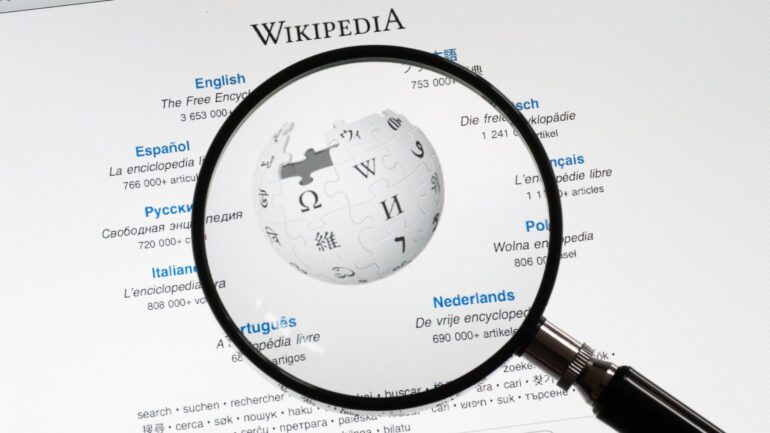TL;DR:
- A recent study highlights SIDE, an AI program, enhancing Wikipedia citation reliability.
- SIDE checks primary sources for accuracy and suggests new references.
- It operates assuming Wikipedia claims are true but cannot verify claim accuracy.
- In the study, SIDE’s suggestions were preferred over original citations 70% of the time.
- SIDE often suggested top references already used by Wikipedia (50% of cases).
- It outperformed human annotators by suggesting appropriate references 21% of the time.
- SIDE’s limitations include focusing on web page references, while Wikipedia has diverse sources.
- Wikipedia’s open editing may introduce bias through citation assignment.
- AI tools like SIDE could help combat online misinformation but require refinement.
Main AI News:
In a remarkable development, a recent study has shed light on an AI program that holds the potential to enhance the credibility of Wikipedia citations, a key aspect of ensuring reliable information in the digital age.
In the vast expanse of knowledge available on Wikipedia, discerning fact from fiction can be a daunting task. This challenge underscores the importance of verifying information by referring to the original sources cited in the footnotes. However, even these primary sources are not infallible, sometimes leading users astray.
Enter SIDE, a groundbreaking AI program designed to bolster the reliability of Wikipedia references. Researchers have meticulously trained its algorithms to identify questionable citations on the platform. SIDE performs a dual role: first, it assesses the accuracy of primary sources, and second, it proposes new ones where necessary.
It is important to note that SIDE operates under the premise that a Wikipedia claim is true. While it can rigorously check the validity of a source, it cannot independently verify the accuracy of claims made within an entry.
The results of a recent study have been nothing short of promising. The AI’s suggested citations were preferred over the originals a remarkable 70 percent of the time. Additionally, SIDE often presented sources that were already the top references used by Wikipedia in nearly 50 percent of the cases. In a surprising twist, it outperformed human annotators by suggesting appropriate references 21 percent of the time.
However, as impressive as SIDE’s performance may be, the researchers acknowledge that there is room for improvement. Alternative programs may emerge that surpass the current design in terms of both quality and speed. SIDE’s capabilities are currently limited to considering references corresponding to web pages, whereas Wikipedia encompasses citations from diverse sources, including books, scientific articles, and multimedia content like images and videos.
Furthermore, the fundamental nature of Wikipedia, where anyone can assign a reference to a topic, introduces inherent challenges. The researchers speculate that individuals inserting citations may inadvertently introduce bias depending on the subject matter.
In the grander scheme of things, the potential of AI in fact-checking and information validation is profound. Both Wikipedia and social media platforms face persistent challenges from bad actors and automated bots disseminating false information. This issue has gained heightened significance, particularly in the context of misinformation surrounding events like the Israel-Hamas conflict and the upcoming US presidential elections.
The deployment of AI tools such as SIDE for this purpose could serve as a catalyst in the fight against online misinformation. However, there are still significant advancements and refinements required before AI can fully realize its potential in this domain.
Conclusion:
The emergence of AI programs like SIDE presents a transformative opportunity to enhance the trustworthiness of information on platforms like Wikipedia. While the study reveals promising results, it is essential to recognize that AI’s capabilities are not yet fully harnessed, especially considering the diverse nature of citations on Wikipedia. Nevertheless, the growing role of AI in fact-checking and information validation signifies a significant step forward in combating the pervasive issue of online misinformation, impacting markets reliant on accurate data and knowledge dissemination.

